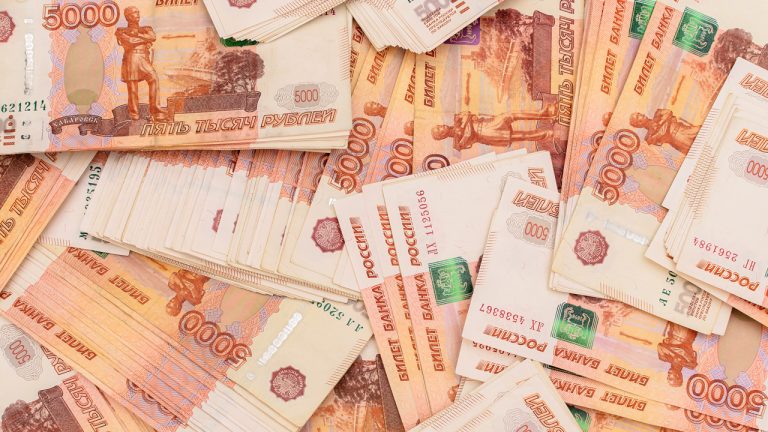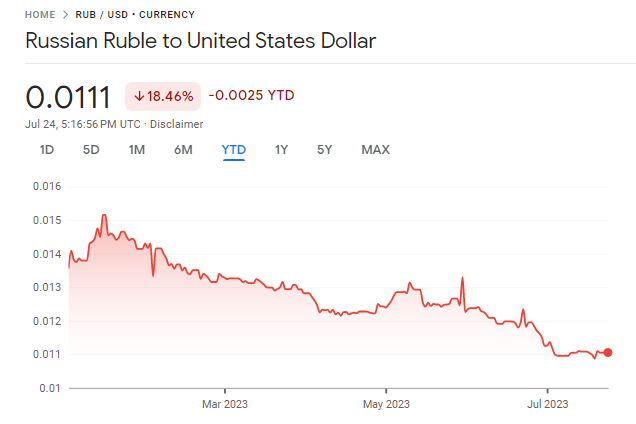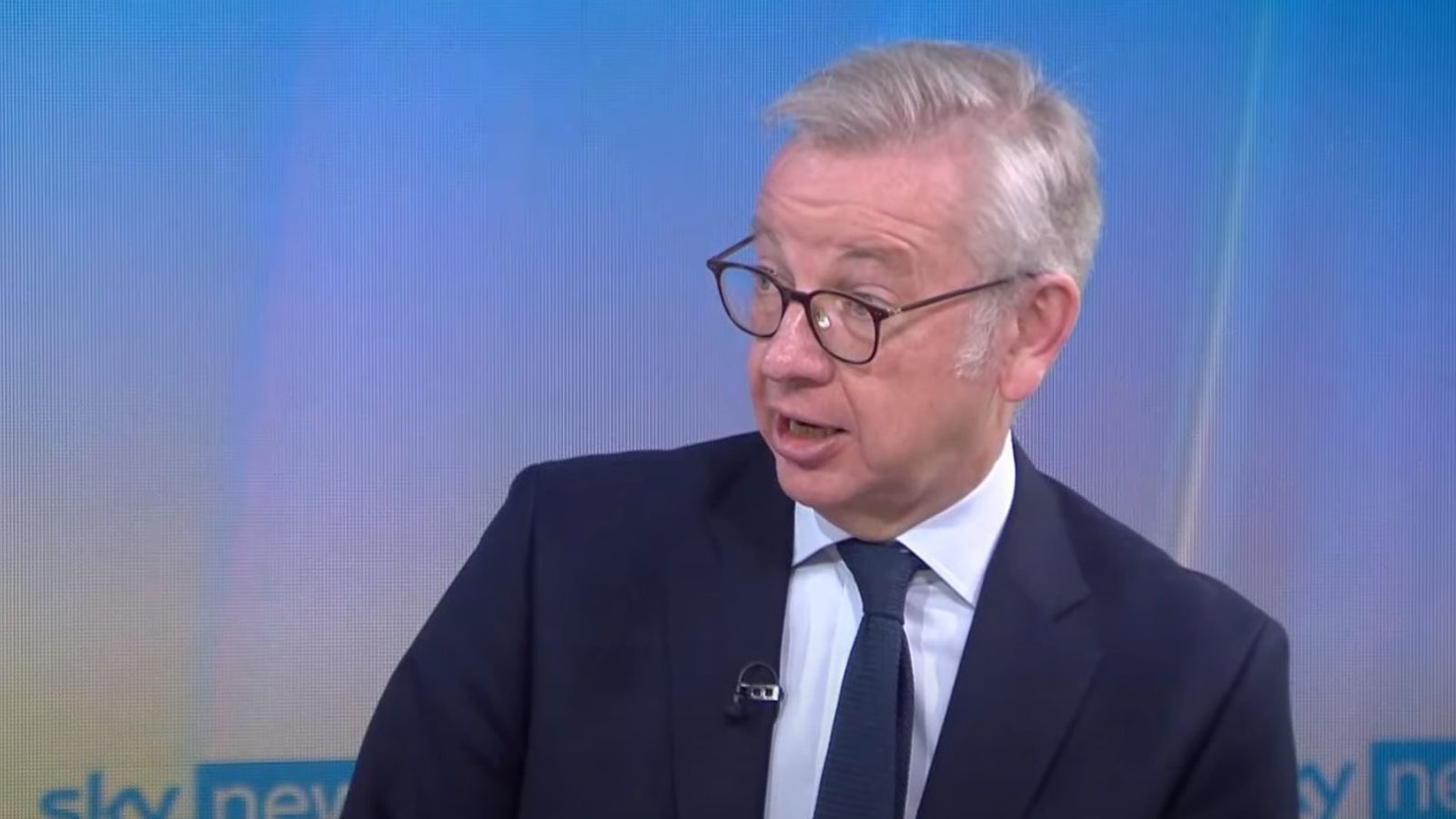
After the Russian currency touched a year low versus the greenback of nearly 92 units for every dollar, economist Robin Brooks said the ruble has stabilized and may eventually be lifted by rising oil prices. The Institute of International Finance Economist urged G7 countries to consider cutting the Russian oil price cap from $60 to $50.
Ruble Down by Over 18% in 2023
According to Robin Brooks, the chief economist at the Institute of International Finance (IIF), the Russian currency — the ruble — has now “stabilized” and is likely to be bolstered by rising oil prices in the coming months. Brooks, a former chief forex strategist at Goldman Sachs, also noted in a tweet that while Russia’s June current was in deficit, G7 countries’ failure to reduce the oil price cap from $60 to $50 per barrel could well give “the ruble a lift.”
Russia's Ruble has stabilized. The summer months are always a soft spot for the Ruble – the June current acount was in deficit – but now rising oil prices are giving the Ruble a lift, which helps Russia's war machine. Cutting the G7 oil price cap from $60 to $50 is way overdue… pic.twitter.com/KmVXneErbp
— Robin Brooks (@RobinBrooksIIF) July 22, 2023
At the time of writing (July 24, 15.30 EST) one U.S. dollar bought just over 90 rubles. In contrast, approximately 73 rubles would buy one dollar at the start of 2023. This means the ruble has depreciated by just over 18% since the start of the year. Steve Hanke, the Johns Hopkins economics professor, has said the ruble’s “free-fall is fueling raging inflation” in Russia which he measures at 50 per annum.
Meanwhile, Brooks’ July 22 tweet is the latest in which the IIF economist has urged Western countries to further restrict Russia’s ability to fend off the effects of sanctions via increased oil revenues. As previously reported by Bitcoin.com News, the Russian ruble was at one point in 2022 the world’s best-performing currency. At the time, some experts attributed the currency’s rise and resilience to surging energy prices.

Russian Oil Producers Defy Sanctions
However, after the winter ended demand for oil and gas subsided and this saw the price of Urals crude — Russia’s main grade of oil — drop from a year high of just over $100 per barrel in 2022 to prices under $60 for much of 2023. Many Western commentators have attributed the drop in the prices of Urals to the price cap. Others including Brooks have called for the further reduction of the price cap but the G7 countries have so far ignored the calls.
“Ever since Russia invaded Ukraine, Chinese exports to Georgia, Belarus, Kazakhstan & Turkey are through the roof. The answer here isn’t to tighten export controls for goods that may end up in Russia. The answer is to lower the G7 cap so Putin doesn’t have cash to buy stuff,” Brooks said in an earlier tweet.
In the meantime, a July 22 Wall Street Journal report suggested that the effectiveness of the G7’s price cap may be waning after the price of Urals crude breached $60 in April. The report pointed to the surging demand for Urals crude by countries like India and China as one of the primary reasons why the price of the commodity went past $60. Oil output cuts agreed upon by OPEC countries are cited as the other reason why Russian oil producers were able to sell at prices above the price cap.
Despite this breach, Western officials such as the United States Deputy Treasury Secretary Wally Adeyemo insist that the price cap is still working.
“Fundamentally, the price cap is holding down Russia’s revenue significantly, while continuing to create a world in which global markets are being supplied with Russian oil,” Adeyemo reportedly said.
What are your thoughts on this story? Let us know what you think in the comments section below.








